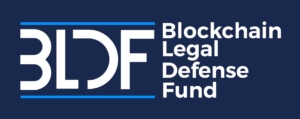Ripple Labs says US SEC ends appeal over crypto oversight
The long-running battle between Ripple Labs and the U.S. Securities and Exchange Commission (SEC) has reached a crucial turning point. In a move that sent waves across the cryptocurrency industry, the SEC has officially dropped its appeal against a key court ruling in the case, effectively allowing Ripple’s partial victory to stand. For many, this development signals a fundamental shift in how U.S. regulators approach digital asset oversight—and it could set a powerful precedent for future cases.
To understand the significance of this moment, we need to revisit how this case began. In December 2020, the SEC sued Ripple Labs and its executives, alleging that XRP, Ripple’s native token, was an unregistered security. The SEC’s core claim was that Ripple had raised over $1.3 billion through illegal securities offerings.
Ripple pushed back, arguing that XRP was a digital currency and therefore outside the SEC’s jurisdiction. For years, the case proceeded through the federal courts, attracting global attention as a potential test case for how cryptocurrencies would be treated under U.S. securities law.
Then came the bombshell ruling in July 2023. Judge Analisa Torres of the Southern District of New York ruled that XRP was not a security when sold to the general public via crypto exchanges. She did, however, find that Ripple’s institutional sales of XRP did qualify as securities offerings. This nuanced decision gave Ripple a partial win but left the door open for further legal challenges.
The SEC promptly filed a notice of appeal, but as of April 2025, that challenge has now been dropped. In legal terms, the decision by the SEC to abandon its appeal makes the district court’s original ruling final. And in practical terms, it means Ripple has scored one of the most important legal victories in the crypto sector to date.
Why is this such a big deal? Because it clarifies that, at least under certain conditions, digital assets sold on secondary markets, like exchanges, are not automatically considered securities. This is a major blow to the SEC’s strategy of regulating crypto through enforcement rather than formal rulemaking.
The dropped appeal also highlights a deeper tension within the federal government. Under a new administration, it seems there’s a growing recognition that the U.S. needs a coherent, comprehensive crypto framework—one that provides regulatory clarity without stifling innovation. The Ripple case has now become a symbol of the policy disarray that has plagued the space for years.
From Ripple’s perspective, this is more than a legal win. It’s a reputational reset. The company, which had once been cast as a rule-breaker, can now position itself as a lawful operator in a murky regulatory environment. That’s powerful both in terms of investor confidence and global partnerships.
But the implications go far beyond Ripple. Crypto exchanges, token issuers, and investors now have a judicial precedent they can point to when facing similar claims. It doesn’t mean the industry is free from regulatory risk—far from it—but it does provide a roadmap for arguing that many token sales are not securities transactions under U.S. law.
Still, this is not the end of the story. The SEC retains the power to regulate certain types of crypto activity, particularly when fraud is involved or when tokens are marketed as investment contracts. And Congress remains under pressure to pass legislation that would delineate the boundaries between crypto and securities regulation.
Ultimately, the SEC’s decision to drop its appeal in the Ripple case represents a historic inflection point. It validates a more nuanced approach to crypto classification and signals a slow but necessary shift in enforcement philosophy. For companies operating in the space, this moment offers a sliver of clarity in an otherwise unpredictable legal landscape.
More importantly, it suggests that a court-tested, case-by-case approach may be the only viable path forward, at least until lawmakers step in. For now, Ripple stands vindicated, and the rest of the crypto industry is watching closely.






Leave a Reply
Want to join the discussion?Feel free to contribute!